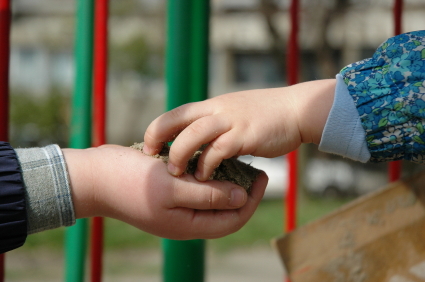
One of the chief “charges” that people bring against God is all the evil that they witness in the world. The logic is that a good God would eliminate any bad and therefore everything from the consequences that we face for our poor choices to the atrocities that men inflict on other men would be obliterated if God were real. While it is right to acknowledge that there are things in this world that are difficult, painful, and downright cruel, it is wrong to think that because these things exist God does not. In fact, as many philosophers have argued, it is because we recognize these things as evil that we can know that there is good. God is the ultimate standard of goodness that we are all familiar with even if we choose not to acknowledge so.
Scripture is replete with reminders that things in this life are not as they should be (e.g. John 16:33, James 1:2, Romans 8:18). In other words, God’s Word does not ignore the fact that in this life people will contend with many difficult things. God’s children are not given immunity from life’s challenges. Scripture in fact warns us to expect them (1 Peter 4:12, 2 Timothy 3:12). However, the difficulties of life should not overwhelm those who place their trust in Christ because they know that their true treasure is not in this life but in the next. They are looking towards the better things that Christ has promised for them and because of this, they can be content even in the most dreadful, yet temporal, of circumstances.
Cultivating this eternal mindset is important for Christians and it is one that I have spent a considerable time trying to develop. Perhaps due to my introspective nature, it is easy for me to be all too aware of the evil that befalls many people and spending too much time dwelling on such things is apt to lead to despair. However, in acknowledging that for God’s children this world is not our home, things may be difficult but they are not insurmountable. When the worse life has to offer you is considered gain (Phil. 1:21), you can be prepared for anything that may come your way. Focusing on what is to come in this next life equips you to contend with what this world has to offer in this one.
In seeking to develop an eternal perspective, I have to be careful that I don’t lose track of the fact that not only does God promise good for us in eternity, He promises that we will see evidence of His goodness here as well. As I have written about before, I need to train myself to see the good that He brings into my life especially when I’m prone to look elsewhere. Like David, I can be confident that I will see the goodness of the Lord in the land of the living, and with this confidence I can expect that if I’m going through a difficult time now, His good will be coming.
However, what I’ve also realized is that I need to purpose to see the good that God brings into others’ lives as well. After all, the words of the Psalm do not say that you will “have good in the land of the living.” Instead, it states that the Psalmist will “look upon the goodness of the Lord.” We can not only see how the Lord is good to us, but we should actively look to see how He has been gracious in the lives of others. This requires getting the focus off of what entangles us in order to witness God’s faithfulness, generosity and love in the lives of His children. We should be praising God not only for what He has done and is doing in our own lives, but also for what He has done and is doing in the rest of His Church.
The challenge is that while seeing the good in the midst of the bad may be difficult in our own lives, we are even less inclined to do it as bystanders in the lives of others. However, when we refuse to practice this we miss out on learning more about how God works and in celebrating what He has given to our brothers and sisters in Him. When our eyes are so focused on what God is doing with us that we fail to see what He has given others, we are likely missing out on the opportunity to witness some of His goodness that He has positioned us to see. We miss the chance to praise and worship Him for the specific work He is doing in the lives of those we know and love.
It is good to have an eternal perspective and it is also good to have confidence that God will bring His goodness to us in the land of the living. However, as we embrace both of these things let us also remember that we can observe God’s graciousness not only in how He treats us, but in His generosity to His other children. Let us look for these things, and let us thank Him for them. Knowing that as we see His goodness in the lives of others, we are better able to worship Him to the fullest extent which He so richly deserves.
